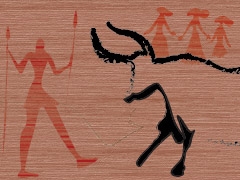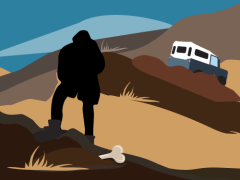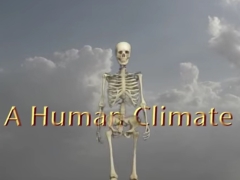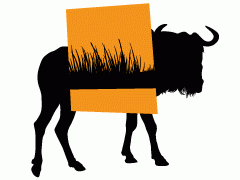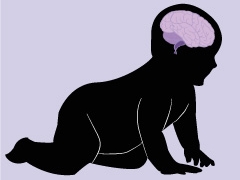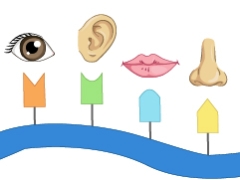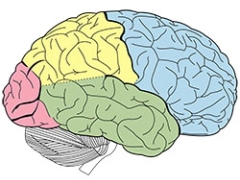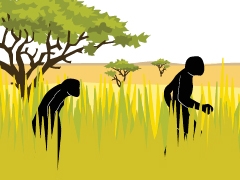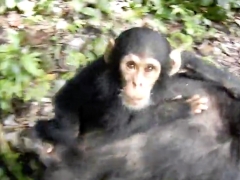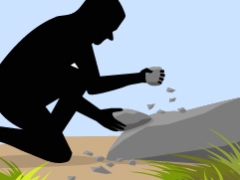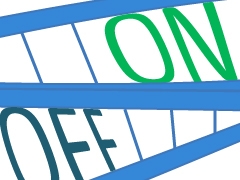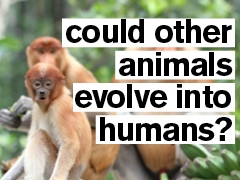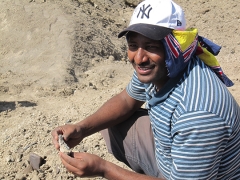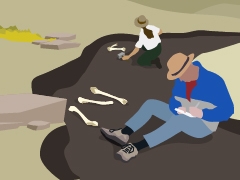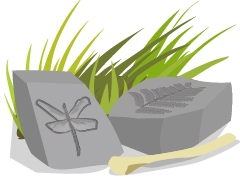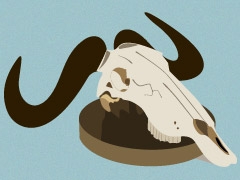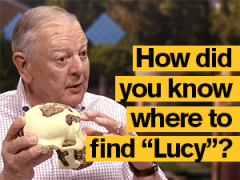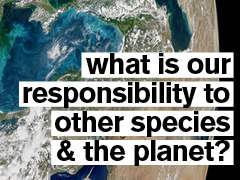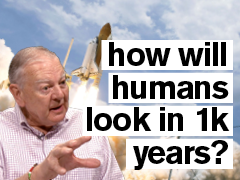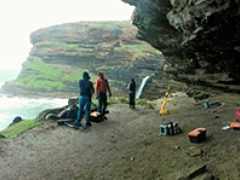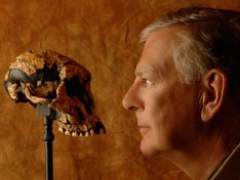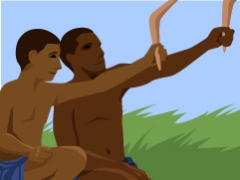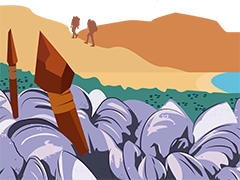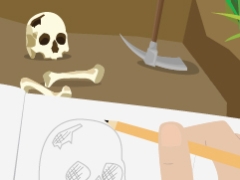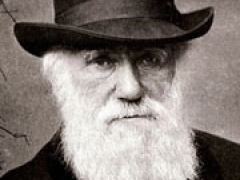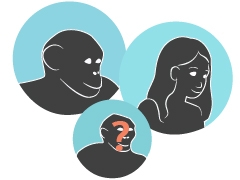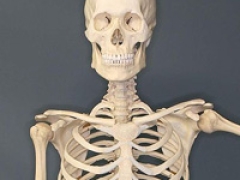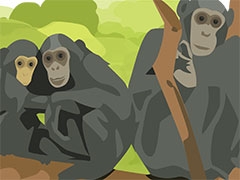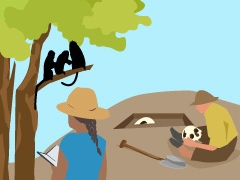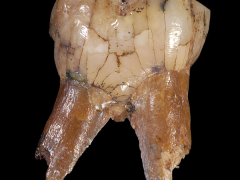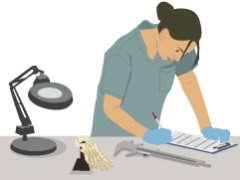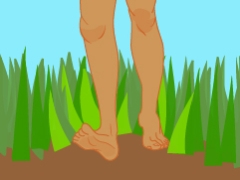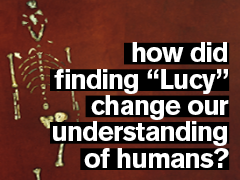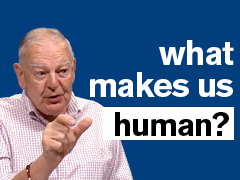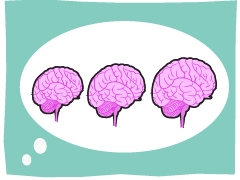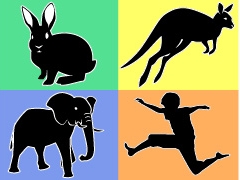Stories
Explore the world of anthropology and meet some of our anthropologists. Here you can learn about human societies and culture, and find out what is so cool about anthropology that someone would do it for a living. Pick a story to read or listen to one of our podcast shows filled with guest anthropologists who share their experiences and passion for discovery.
Stories
What does it mean to be human? Take a look at the story of how we became…well…us. The search for our first ancestors who looked and acted like people today is the search for what it means to be human.
Profiles
The field of paleoanthropology is a young science. There have been many paleoanthropologists over the years who have found many important fossils. But, even by the early 1970s, we didn't know everything about human evolution—and we still don't!Back then, reserachers knew a few key events in human evolution and how they make us different from our primate cousins. But, they did not know which events happened first, which is very important to understanding why humans evolved the way we did.
Video
Scientists are drilling deep into the five ancient African lake beds to search for clues about the environment over the last five million years. The aim of the project is to look for climate change in areas where our early human ancestors lived.
Profiles
It is possible to learn more about the environment where animals live by studying the animals themselves.
Stories
We have big brains, but are we born with big brains or do they get big as we grow up? It turns out that it’s a little bit of both. Learn about how our incredible brains grow and find out what limits our brain size. Also in: Español
Stories
Your DNA is unique, and it makes you a human, not any other animal. Sequencing DNA lets us identify genetic similarities and differences that relate to species similarities and differences.
Stories
The differences between our brains and the brains of other animals is an important part of what makes us human. Find out why your brain is so big and what that allows you to do.
Stories
Climate change has been a hot topic in discussions on the future of our global community. But looking into the past is also important. What do we know about how the climate and the environment affected our early ancestors?
Video
IHO Founding Director Donald Johanson visited the Jane Goodall Institute in Gombe, Tanzania, and was lucky to come upon this little band of mother chimpanzees with their babies. Johanson is the paleoanthropologist who discovered the famous "Lucy" fossil in Hadar, Ethiopia in 1974. He has traveled all over the world, but you can hear the surprise and wonder in his voice when he sees this group of animals.
Stories
Since long ago, the survival of our ancestors has depended in part on technology. Even today, the shoes you put on and the car you drive are both built on previous discoveries. We can trace human technological developments way back to over three million years ago.
Stories
Sitting on the sofa, you flip through a family photo album. You see a young man dressed in a uniform from the 1940s. Your father looks a lot like the man in the black and white photograph. You flip another page and go further back in time. You see a woman in a Victorian style dress, and you think she looks like your sister.
Stories
DNA controls all of your traits. Right? Well, kind of. The environment can actually control how your DNA works. Learn about how it does this through a series of switches known as epigenetic mechanisms.
Video
Donald Johanson -- credited with discovering the Australopithecus afarensis skeleton known as "Lucy"-- talks about why humans are the way we are, and about whether any other animals might "become human" in the future.
Video
In 2013, a research team was working in the dusty hills of Ledi-Geraru, Ethiopia. The geologists identified a layer of sediment, or dirt, as belonging to the time period they were trying to study. The scientists hoped to find fossils from this time period. They got very lucky and found an important new fossil that helps to fill in a period of history in human evolution.
Stories
To make it easier to find fossils, you need to know how and where to look. Luckily, there are clues all around, and a good fossil detective knows to ask the four Ws: who, what, when, and where.
Stories
The fossil record is not only about bones. Geology is an important part in learning about fossils and uncovering their story.
Stories
Many types of plants and animals lived alongside our ancestors in East Africa over the last six million years. These organisms can help us learn about the habitats of early humans and how these habitats changed over time.
Video
Donald Johanson, credited with discovering the Australopithecus afarensis skeleton known as "Lucy" in 1974, talks about how he knew where to start looking.Look for more videos in this series, as we ask prominent anthropologists to answer some of your most compelling questions.Have a question for us? Submit it to our experts!
Video
Donald Johanson -- credited with discovering "Lucy"-- talks about our responsibility to the species with whom we share this world, and to this planet.
Video
Donald Johanson -- credited with discovering the Australopithecus afarensis skeleton known as "Lucy"-- talks about human evolutionary timelines and what the future might hold for humans.Look for more videos in this series, as we ask world-renowned anthropologists some of your most compelling questions. Have a question for us? Ask now!
Video
Pondoland, along the eastern coast of South Africa, has not been previously explored for evidence of early modern human habitation. Join the team along the coast to search for our origins!
Stories
Life is complex and diverse but comes down to four little letters. The central code that makes all life on earth possible is found in a tiny molecule known as DNA.
Audio
Dr. Biology talks with anthropologist Donald Johanson about the bits and pieces of Lucy and the interesting past that arose with her bones.
Stories
Culture holds all the information needed to make tools, friends, and a living. Humans are good at learning and imitating what other people do, which has helped us survive and thrive.
Profiles
ASU researcher Curtis Marean has spent over 20 years excavating caves in South Africa. He wants to learn about the relationship between climate and environmental change and human evolution.
Stories
Cargo pants. Bug repellent. Duffel bag. Laptop computer. These are just a few of the “must-haves” for anthropologists as they set off to do fieldwork each year.
Stories
In 1859, Charles Darwin published a book called On the Origin of Species that completely changed our understanding of how biodiversity arises.
Stories
As humans, we have a place on the primate family tree. We can find it by studying other primates and comparing their traits to our own.
Audio
Dead men tell no tales, but their bones can. It just takes a particular kind of scientist to read the clues that tell the story. Dr. Biology sits down with guest Tony Falsetti, a forensic anthropologist who knows his way around a skeleton. They talk about the role of forensic anthropology and some of the mysteries of history Tony has helped to solve.Listen here! https://askabiologist.asu.edu/sites/default/files/ask_a_biologist_vol_086.mp3
Stories
Humans aren't the only animals with complicated social lives. Studying how other primates interact with each other can help us figure out why humans live the way they do.
Profiles
Our species, Homo sapiens, are incredibly unique among the species on Earth today.There are many thousands of species across the world, from microscopic bacteria to massive whales. And many more species have become extinct since life arose on our planet. But humans are the only upright walking, large-brained, tool-using species alive today.
Stories
If you like being outdoors, digging up bones, and doing science, then check out what it’s like to be an anthropologist.
Stories
You are sitting in a dark movie theater. You are trying to enjoy the movie, but you keep thinking about a pesky piece of popcorn stuck between your molars, the back teeth. After fumbling for a toothpick in your pocket, you dislodge the popcorn. You glance down at the toothpick and see a bit of blood from your gums. Although the popcorn is gone, your tooth still throbs with pain.
Stories
Teamwork isn’t just something you do playing sports. It’s also a very important part of what makes humans unique.
Stories
The precious fossils are carefully bound in bubble wrap and placed in fireproof cases. Soon the fossils will have a new home—the laboratory— and the world will get to know all the secrets these fossils have to offer.
Stories
How do you move from one place to another? Well, most humans walk. Walking on two legs is a very human trait. Learn how the evolution of bipedal walking changed the course of our history.
Video
Donald Johanson--credited with discovering the Australopithecus afarensis skeleton known as "Lucy" in 1974-- talks about what we can learn about humans from looking at Australopithecus afarensis and why her discovery was so important.
Video
What sets us apart from other primates? Donald Johanson--credited with discovering the Australopithecus afarensis skeleton known as "Lucy"-- talks about what makes us uniquely human.Look for more videos in this series, as we ask world-renowned anthropologists some of your most compelling questions. Have a question for us? Ask now!
Stories
Big brains are one of the features that make us human. Find out when during our evolution our brains got big and why this change occurred.
Stories
Have you ever wondered how your cat, dog, bird, lizard, or fish is related to you? Animal bodies today are like living history books. They tell us a story that goes back at least 500 million years.

